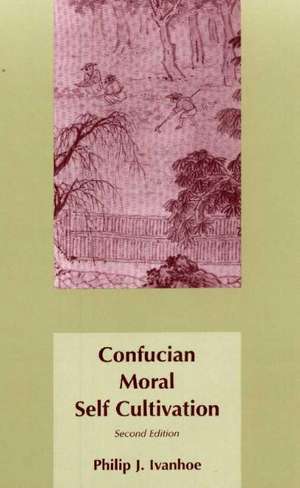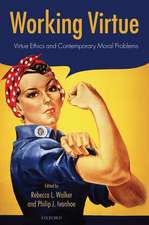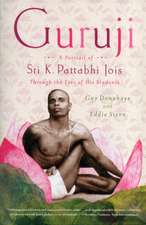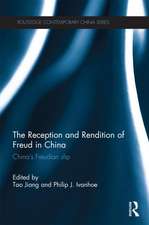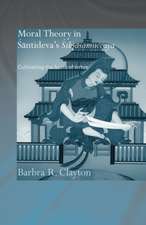Confucian Moral Self Cultivation: Second Edition
Autor Philip J. Ivanhoeen Limba Engleză Paperback – 29 feb 2000
| Toate formatele și edițiile | Preț | Express |
|---|---|---|
| Paperback (1) | 111.70 lei 22-36 zile | +17.53 lei 5-11 zile |
| Hackett Publishing Company – 29 feb 2000 | 111.70 lei 22-36 zile | +17.53 lei 5-11 zile |
| Hardback (1) | 269.63 lei 22-36 zile | |
| Hackett Publishing Company – mar 2000 | 269.63 lei 22-36 zile |
Preț: 111.70 lei
Preț vechi: 122.03 lei
-8% Nou
Puncte Express: 168
Preț estimativ în valută:
21.38€ • 23.23$ • 17.97£
21.38€ • 23.23$ • 17.97£
Carte disponibilă
Livrare economică 31 martie-14 aprilie
Livrare express 14-20 martie pentru 27.52 lei
Preluare comenzi: 021 569.72.76
Specificații
ISBN-13: 9780872205086
ISBN-10: 0872205088
Pagini: 152
Dimensiuni: 9 x 215 x 139 mm
Greutate: 0.18 kg
Editura: Hackett Publishing Company
Colecția Hackett Publishing Company, Inc (US)
ISBN-10: 0872205088
Pagini: 152
Dimensiuni: 9 x 215 x 139 mm
Greutate: 0.18 kg
Editura: Hackett Publishing Company
Colecția Hackett Publishing Company, Inc (US)
Recenzii
The publication of this book itself is news. Hackett has emerged as one of the three leading publishers in English of books in philosophy, especially of classic texts and studies of classic texts. Their publication of a second edition of Ivanhoe's study is a strong signal that China is now on the English-speaking world's philosophical map . . . . Besides being a harbinger, Ivanhoe's book has singular merits. He is a careful and thorough interpreter of texts, and also has the knack of presenting an insight or an interpretive move in a short space and in pointed language. This ability to say something important in a condensed and vivid way is invaluable in a book whose intended audience includes not only scholars of Chinese philosophy but also philosophically grounded readers whose previous knowledge of Chinese philosophy has been slight. Another merit is the way in which Ivanhoe presents other people's scholarship. He provides a wide range of citations of recent interpretations of the texts under discussion; but in general the explanation and Ivanhoe's answering comment are kept brief, which enhances the readability of the book for its intended audiences . . . . As a detailed presentation of Confucian accounts of moral self cultivation, and of recent scholarship pertaining to this, [this book] is I think superb and unrivaled. --Joel J. Kupperman, Journal of Chinese Philosophy
